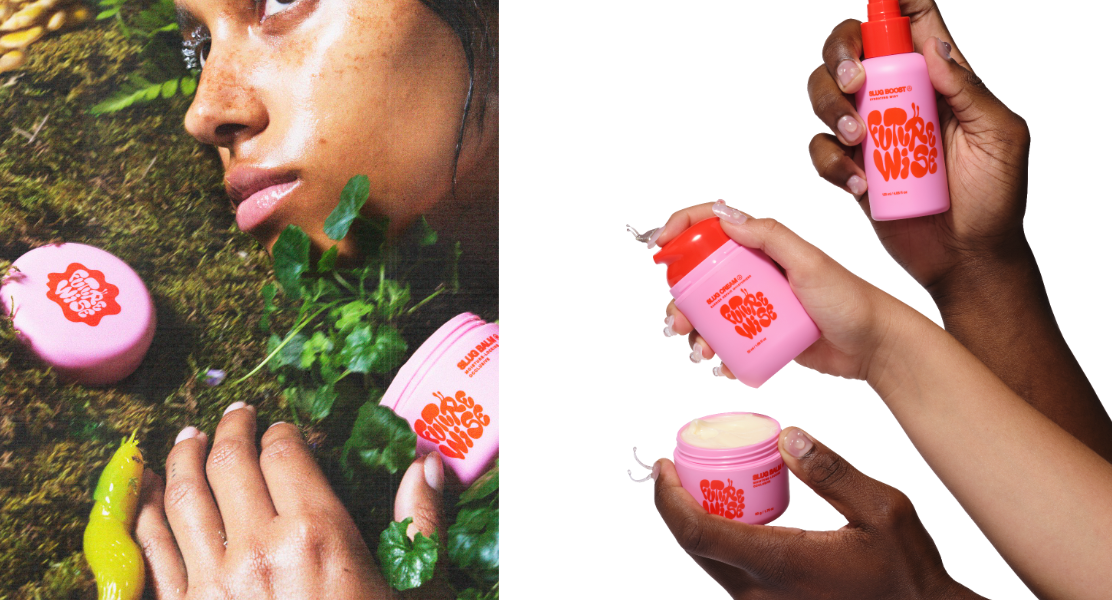All products featured on Glossy Pop are independently selected by our editorial team. However, when you buy something through our retail links, we may earn an affiliate commission.
On February 5, Futurewise debuted at Target. The skin-care brand, co-founded by Julie Schott and Brian Bordainick, launched in November with the plan to bring a brand identity to the practice of slugging.
Futurewise is the third brand Schott and Bordainick have launched in Target. After launching DTC, they also turned to the retailer to sell their brands Starface, known for its “acne-positive” pimple patches, and Plus, with its popular “just-add-water” body wash.
Target has been key to the growth of the brands, Bordainick said. “Our strategy is always to build a strong digital ownership [of a category and a narrative], and then to get in front of as many people as possible within the [target] demographic,” he said. Target has worked to facilitate step two each time.
As for Futurewise, third co-founder Janet Park said its shoppers are “mostly young adults in their 20s and early 30s who are looking for a high-quality product and an accessible price point.” At Target, the brand is selling the Slug Boost Hydrating Mist, the Slug Cream Barrier Repair Moisturizer and the Slug Balm Moisture-Locking Occlusive for $24.49 each.
The brands stand out on the store’s shelves, Bordainick said, because his team has greatly invested in developing their strong visual identities.
Starface launched in 2019, and Plus launched in 2021. The young brands are taking a fresh approach to sales channels, which reflects the larger industry shift away from strict direct-to-consumer models. Even Glossier, famously a longtime wholesale holdout, launched in Sephora last week.
“We don’t really look at the world in terms of, ‘this is our direct-to-consumer [channel], this is our brick-and-mortar.’ Brick-and-mortar is a huge opportunity for us, as is our website, as is doing things like out-of-home [ads] and billboards,” Bordainick said. “It all creates an experience for a consumer, and you’re trying to meet them wherever they are. And [people are] no longer one dimensional, in the way they shop.”
Park added. “Our strategy is an omnichannel strategy that’s leveraging both retail and DTC, and looking at how they’re working together, versus [looking at them as] two separate streams next to each other.”
Bordainick likened DTC to a brand’s house, in which it gets to build and design as it chooses. Retail, on the other hand, is like going to someone else’s house: You have less control. You’re also next to the competition. But among benefits, it introduces the brand to a new audience.
Though Futurewise is just a few weeks into its Target partnership, the brand is already seeing that many of the store’s shoppers are buying the full three-piece skin-care system, which is common in the brand’s DTC sales.
“Our [customer] is showing a lot of excitement about the fact that we’re available at Target,” Park said, referencing feedback from social media.




